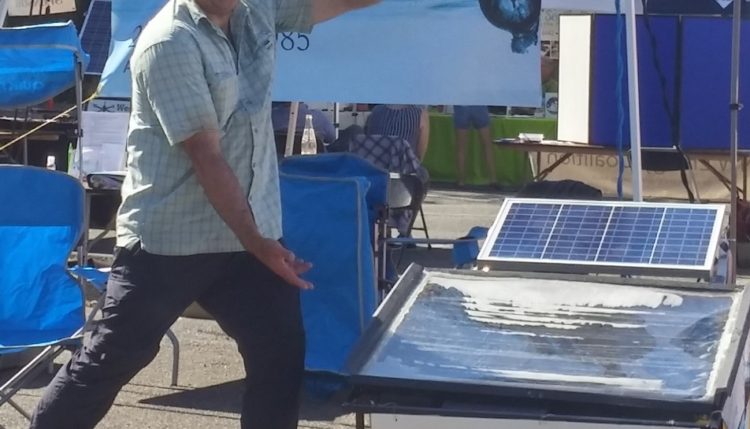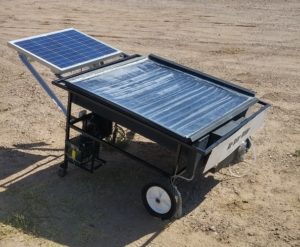
23LPD, 23 liters (6 gallons) per day over 50% savings compared to bottled water
6 Gallon (23 liters) per day Air Solar Water System:
 The A2WH-23LPD Air Solar Water system will produce an average of 23 Liters of clean water every sunny summer day.
The A2WH-23LPD Air Solar Water system will produce an average of 23 Liters of clean water every sunny summer day.
- 23LPD contains 16 A2WH-83S units.
- Condenses water from humidity in air
- Works in low humidity areas like deserts.
- Powered entirely by solar energy.
- Does not depend on the electric grid
- Produces water even on days when Grid power is out.
- Produces water after major storms when power is down.
- Produces water when other sources of water are unavailable or contaminated.
- Includes all the solar collectors needed for immediate operation.
- Arrives mostly assembled for fast easy installation.
This 23LPD is perfect for an average household’s emergency water needs
- Contact us Current Quote: 206-601-2985 email:

Lower in Cost
Bottled water delivery cost $6 for a 5 gallon jug or $1.20 per gallon. The cost of water from Air Solar Water 83s will average under $0.50 per gallon and could be lower depending on location. Air Solar water is delivering over a 50% discount while also reducing pollution and eliminating the hassle of returning drums. For every gallon produced by Air Solar Water it can reduce carbon emissions by over 2 pounds as compared to running an electric powered AWG unit.
Product Details
- Model: A2WH-23LPD
- Solar Thermal Air to Water AWG Atmospheric Water Generator
- Produces 6 gallons of pure potable water per day
- Operates entirely from renewable energy
- Includes all necessary solar heat collectors
- Includes all necessary photo voltaic panels
Environment
- 23LPD Includes heat and PV panels
- Rated production is ambient is 70F @ 60% RH (Relative Humidity) during coldest 2 hours of night. Daytime humidity can be as low as 15% if nighttime humidity rises above 60%.
- Requires full solar exposure 8 hour sun day @ 950 or more watts per sq meter
- Estimated lifetime production over a 20 year life.
- Less sun, lower humidity and lower temperatures generally cause lower production.
- Systems can be optimized for the local operating conditions. These optimizations may cost extra and may increase size and weight.
- If flooded it must be re-certified by factory before potable water can be produced.